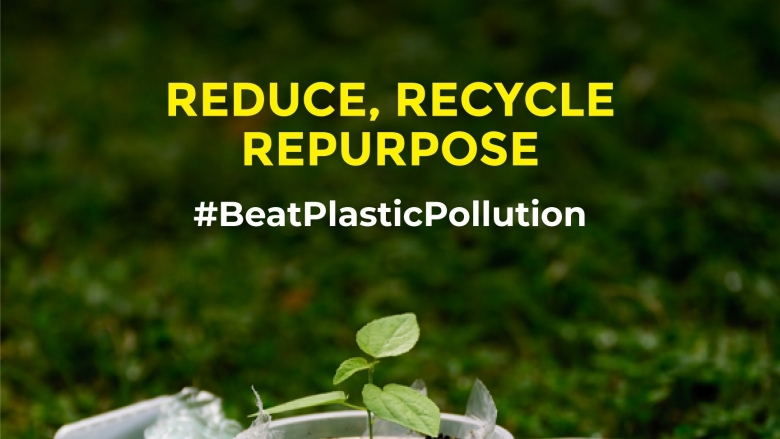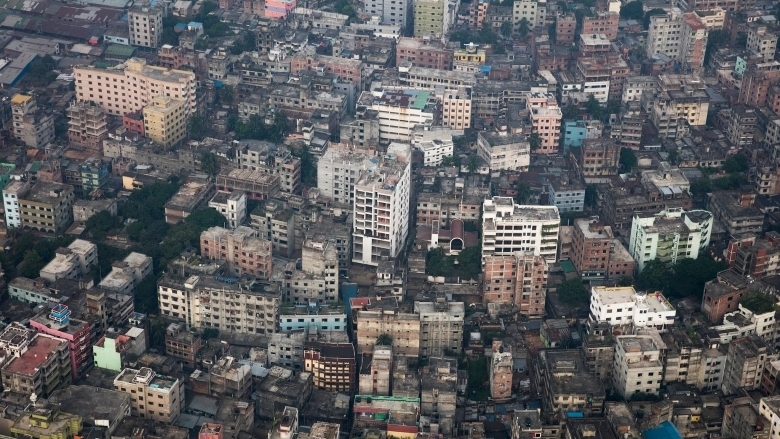Bangladesh’s Plastic Challenge

Towards a Circular Future: Mobilizing Communities, Policy, and Innovation to Fight Plastic Waste
In the heart of Bangladesh's fast-growing cities and quiet countryside lies a creeping crisis—plastic pollution. Once hailed as a miracle of modern material, plastic has become a persistent pollutant choking our rivers, flooding urban drains, and invading our food chains. Among the worst-affected is Chattogram, producing nearly 249 tonnes of plastic waste daily, a figure projected to rise to 428 tonnes per day by 2052 (CUET, 2024).
In response to this mounting environmental threat, Save Earth Society, a grassroots environmental movement, has launched its “Beat Plastic” campaign—a comprehensive, community-driven effort to address plastic pollution through the 3R strategy: Reduce, Reuse, and Recycle, aligning closely with Bangladesh’s National Action Plan for Sustainable Plastic Management (World Bank, 2021).
A Plastic Pandemic: The Scale of the Crisis
According to the World Bank (2021), Bangladesh is ranked among the top countries globally for plastic mismanagement. The average urban plastic consumption tripled in 15 years, with Dhaka alone consuming 22.25 kg per person annually, compared to the national urban average of 9.0 kg. Shockingly, only 31% of plastic waste is recycled, while single-use plastics, such as bags, sachets, and packaging, dominate the remaining waste stream (LightCastle Partners, 2022).
In Chattogram, 56% of plastic waste remains uncollected, often dumped in canals, rivers, and low-lying areas, leading to waterlogging, loss of biodiversity, and contamination of food systems through microplastics—tiny particles now found in everything from bottled water to fish.

Save Earth Society’s Beat Plastic Campaign: From Awareness to Action
Save Earth Society launched Beat Plastic as a multi-dimensional campaign targeting not just waste collection but the entire plastic value chain—from consumption habits to disposal infrastructure. Their approach includes:
1. Public Education and Youth Mobilization
- Conducted awareness drives in 50+ schools and colleges across Cumilla and Chattogram.
- Launched social media campaigns using local influencers to promote plastic-free lifestyles.
- Distributed “Plastic-Free School Kits” including jute bags, refillable bottles, and eco-notebooks.
2. Community Cleanups and Recycling Hubs
- Organised monthly clean-up drives in hotspots like Kandirpar, Tomson Bridge, and Sitakunda beach.
- Partnered with local municipalities to set up community recycling stations for collecting PET bottles, LDPE bags, and hard plastics.
3. Plastic-Free Marketplace Initiatives
- Introduced a “Green Vendor” certification for shopkeepers avoiding single-use plastics.
- Facilitated local producers to return to biodegradable packaging, including jute, clay, and paper-based alternatives.
4. Advocacy and Policy Alignment
- Engaged local authorities to implement and enforce the High Court directive (2020) banning single-use plastics in coastal areas and hotels.
- Worked with local industries to adopt extended producer responsibility (EPR) models in line with the Circular Economy Action Plan (MoEFCC, 2023).
Why the 3R Model Matters: Reduce, Reuse, Recycle
The 3R approach is central to Bangladesh’s National Action Plan for Sustainable Plastic Management, which aims to:
- Recycle 50% of plastics by 2025.
- Phase out 90% of single-use plastics by 2026.
- Reduce overall plastic generation by 30% by 2030, from the 2020/21 baseline (World Bank, 2021).
Save Earth Society’s Beat Plastic campaign operationalises these targets at the community level—where change must begin. For example, in a recent initiative in Cumilla, 3,000 school students pledged to eliminate single-use plastics from their homes. Within three months, over 1.5 tonnes of plastic were collected and recycled, preventing them from entering local drainage and water bodies.

Obstacles on the Path to Progress
While the efforts are commendable, Bangladesh’s journey toward plastic sustainability faces several systemic challenges:
- Low recycling infrastructure: Most plastic waste is processed by informal recyclers with no health or safety standards.
- Lack of enforcement: Despite the 2002 ban on thin plastic bags, enforcement remains sporadic.
- Behavioral inertia: Public preference still leans heavily toward convenient, cheap plastic packaging.
- Economic dependency: The plastic industry employs over 1.2 million people and contributes significantly to exports and local trade (LightCastle Partners, 2022).
Addressing these challenges will require a whole-of-society approach, involving government enforcement, private sector innovation, civil society engagement, and citizen participation.

A Circular Economy: The Only Way Forward
A circular plastic economy is no longer optional—it is critical. By redesigning products for longevity, incentivising reuse, and investing in scalable recycling technologies, Bangladesh can shift from a “use and discard” culture to a “reuse and regenerate” model. According to the World Bank, this shift can generate green jobs, boost innovation, and reduce dependency on virgin materials.
Save Earth Society aims to establish Plastic Innovation Labs by 2026 to:
- Train youth on upcycling techniques (e.g., making bricks from plastic waste).
- Support small enterprises producing biodegradable alternatives.
- Conduct plastic audits in urban markets.
Recommendations for Scaling Impact
To further support Bangladesh’s green ambitions, the following strategies are crucial:
- Introduce deposit-return schemes for plastic bottles and containers.
- Subsidise jute and biodegradable packaging to compete with plastic.
- Mandate corporate accountability through EPR laws and public reporting.
- Develop plastic-free zones in environmentally sensitive areas.
- Integrate WASH and plastic waste education in national curricula.
The Future Lies in Our Hands
Plastic is a material that never truly disappears—it only changes form, contaminating our soil, water, and food. But the crisis is not insurmountable. As Save Earth Society proves, determined communities, informed youth, and responsible businesses can beat plastic pollution together.
Now is the time to act boldly, collaborate widely, and innovate endlessly. Let us not pass on a polluted planet to our next generation. Instead, let us pass on a legacy of conscious consumption and sustainable living.
📚 References
Chittagong University of Engineering and Technology. (2024). Study on Urban Plastic Waste Generation in Chattogram. Department of Civil Engineering.
LightCastle Partners. (2022). Bangladesh Plastic Industry Snapshot: Towards Sustainability.
Ministry of Environment, Forest and Climate Change. (2023). Circular Economy Action Plan for Sustainable Plastic Management. Government of Bangladesh.
World Bank. (2021). Towards a Multisectoral Action Plan for Sustainable Plastic Management in Bangladesh. https://documents.worldbank.org
